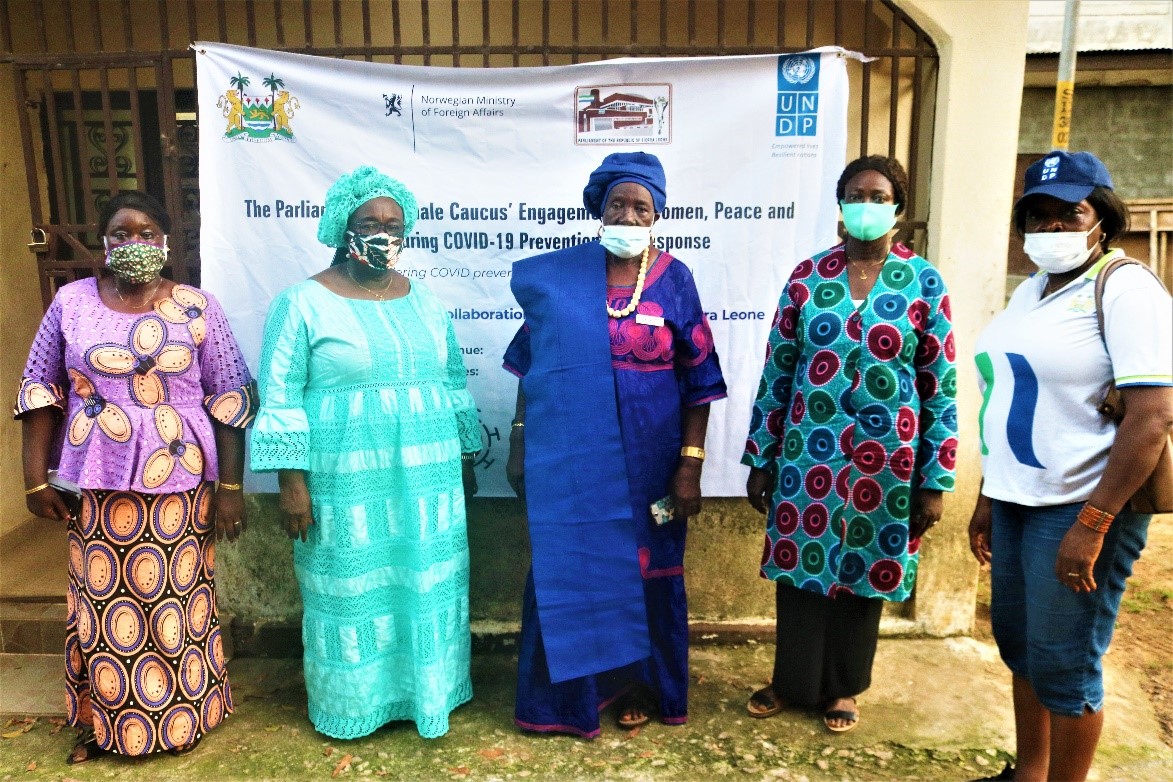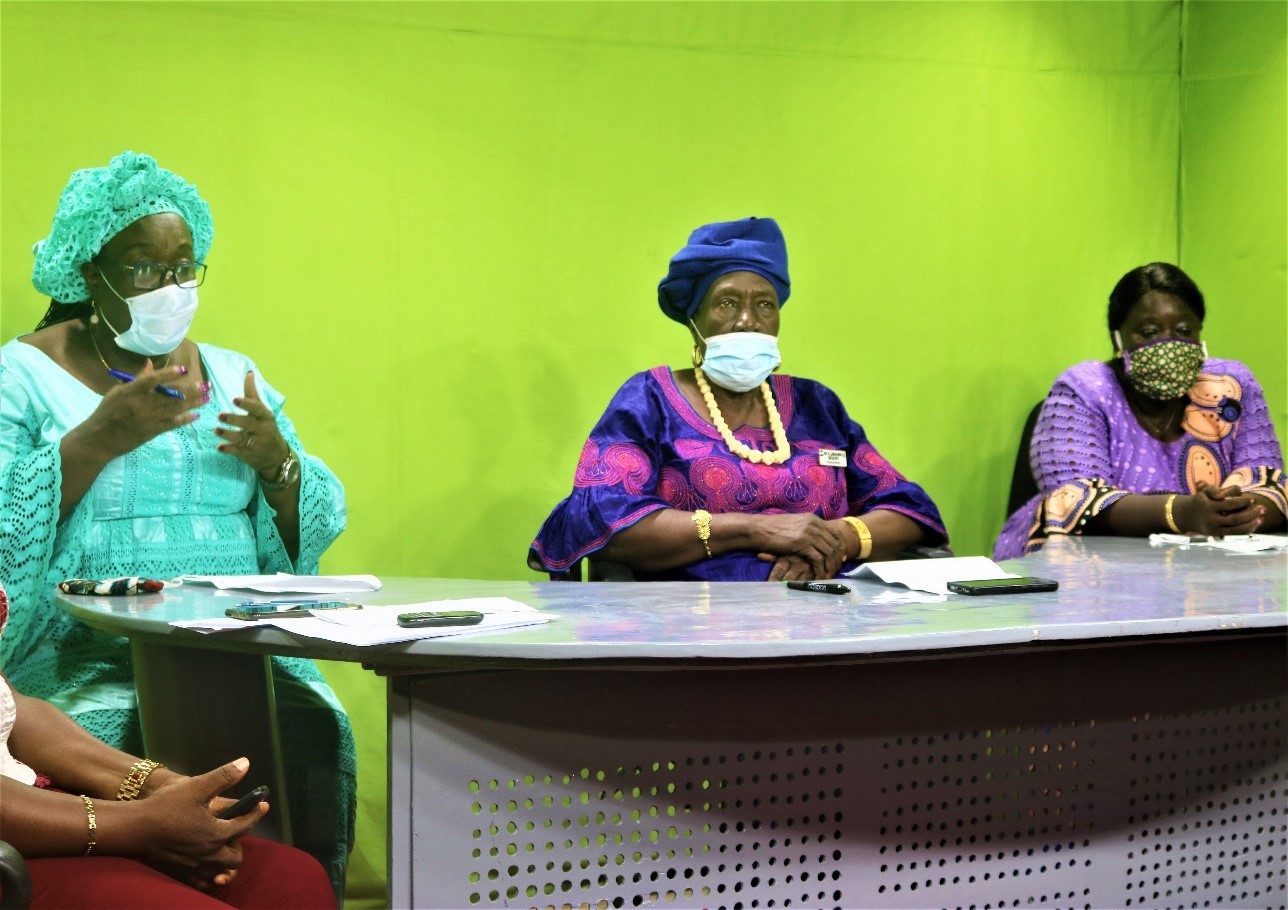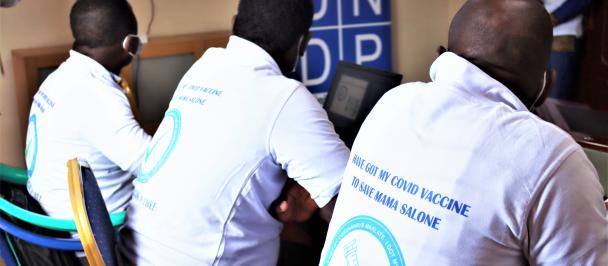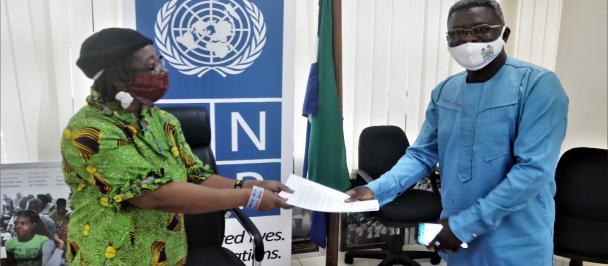In 2019, female honorable members of Parliament of the Sierra Leone Parliament were engaged in the implementation of Women, Peace and Security agenda as espoused in the various National Action Plans on United Nations Security Council Resolution (UNSCR-1325). This engagement proved to be a good initiative for women parliamentarians and particularly for a new Parliament at the time. In the outcry of the COVID-19, what has been slower to emerge is how regulations and byelaws instituted could embrace gender specific issues that affect women.
Today, all 16 current female Members of Parliament (MPs) of the Sierra Leone House of Parliament are now leading and are ‘breaking the silence’ on women, peace and security issues in the wake of the COVID-19 pandemic in Sierra Leone. With support from UNDP, the Female Caucus of the Sierra Leone Parliament has taken a step further to invest more time and dialogue with stakeholders to increase understanding of the impact of the COVID crises on women’s peace and security, to call for action that would incorporate gender sensitive community byelaws at constituency level, while at the same time partnering with TV and community radio stations to accentuate these issues.
“You don’t have much voice when you are not at the helm of affairs. We are calling for total inclusion of women into every structure of the COVID-19 response in Sierra Leone from district to national level. This is true because out-of-pocket-cost for women wellbeing (healthcare, transportation of market/business products, and other social needs) has significantly increased during the pandemic. Women are also facing increasing distressing challenges especially with petty trading, intimate partner violence, sexual harassment, and abuse of women and girls are exacerbated under lockdowns” Says President of the Female Parliamentary Caucus-Honorable Veronica Kadie Sesay of Constituency 094 Moyamba District.
According to the country’s 2015 Population and Housing Census Thematic Report on Economic Characteristics, women account for about 57% of the informal sector’s workforce. Economically therefore, women who form the bulk of petty traders, suffer economic loss due to limited trading hours and increase cost of transporting goods-associated with the inter-district lockdown in the country. The halt to cross border activities and the accompanying forced compliance measures have far reaching implications for women. With limited access to basic services and in desperation to perform their reproductive roles of nurturing, women are found in conflict with the law with dire consequences. The current COVID-19 preventive measures taken seem to threaten women’s peace and security. This prevailing economic challenge and lockdown measures could also increase potential for domestic violence within families while making women and girls vulnerable to sex perpetrators.
Thanks to the female honorable MPs who have recognized the current need to translates down to the country context, an engendered response to women vulnerability during a pandemic in line with international commitments.
Interestingly, Paramount Chief Member of Parliament who are the custodians of the country’s cultures and traditions are not left behind either, as part of the Female Parliamentary Caucus, they are highly revered with much need reverence just as well as in their various districts.
Already, women in the various constituents have embraced the unwavering leadership of the Caucus with positive sentiments and feedbacks being garnered during phone in sessions-an airtime slot allocated during the MPs radio and TV discussion programs to solicit real time concerns from the general population for further engagements. The media campaigns at district level are followed by direct engagement with community structures, women’s groups and the large constituents as well as people’s elected representatives so that collectively, they can map out ways to implement preventative measures from a gender perspective more so when they relate to women’s peace and security. This initiative is made possible with funding from the Norwegian Government.

 Locations
Locations



